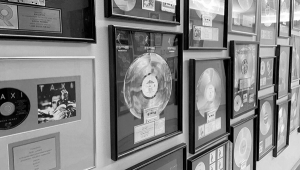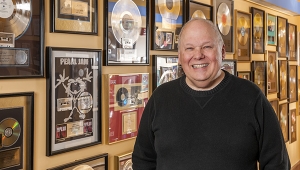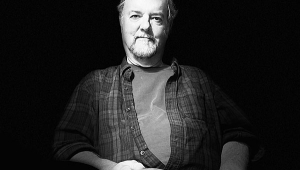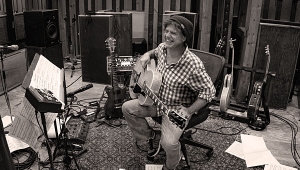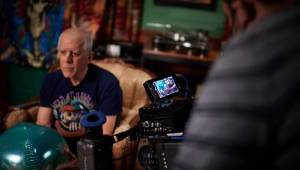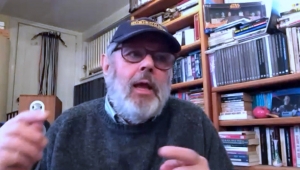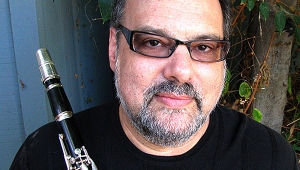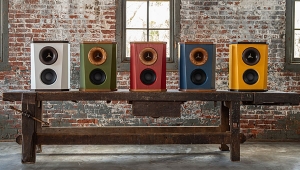| Columns Retired Columns & Blogs |
Tim de Paravicini Page 5
Stereophile: Well, there isn't big money to be made in high-end audio. Especially high-end tube audio.
De Paravicini: That's right. Even in Japan the pace in audio design has slowed down dramatically in the last four or five years. There is a stagnation because of the lack of incentive. There's not enough marketplace demand. I blame a lot of this on the audio magazines. The mighty word is Gospel, and people believe what's in print much more readily than they believe what is verbal. But the words they print have caused more confusion than enlightenment. And they mislead.
Stereophile: You've brought up a couple of interesting words here. You said "Gospel," and you've occasionally used the word "mysticism." There seems to be a lot of that sort of mystique, of things being reported which are in fact just imaginary or hype. How have we come to this?
De Paravicini: It isn't just the magazines that are into hype. There's a certain well-known company in Scotland run by a man with a Germanic-sounding name. The manufacturer has been instrumental in building up a mystique behind his products which has given him control of the turntable market in the UK. That turntable is no longer compared to other people's products, but is taken as a reference even if it isn't the right reference. Don't misunderstand me; it's a very good turntable, but it isn't perfect. Some others are better in some respects.
But I think what we need is healthy skepticism of claims by manufacturers, even if you have got the technical background necessary to challenge something right on the spot. I think it's just the reasonable thing to do. But for some reason audiophiles are highly susceptible to wild speculative assertions, eg, moving coils are better than moving magnets, gold contacts sound better than chrome, and so on.
Stereophile: It makes it hard for somebody with a truly better product to get a fair hearing.
De Paravicini: Well, people won't go against the grain. The population tends to prefer a status quo. Human beings are conservative by nature.
Stereophile: Now digital is being touted as the serious alternative to the analog disc.
De Paravicini: The only good thing that's coming out of this digital syndrome in England is that people in the high-end industry are seriously questioning the capabilities of the digital disc, and there is now an incentive for˙ people in the reviewing profession to find answers as to why digital is not so good. The mathematics have been around a long time to prove that digital is not all that good, but unfortunately they have been buried and are not fully understood by many people. Suffice it to say that now there are viewpoints being expressed that digital has many, many problems that are insoluble.
S:. Insoluble, no matter what the technology, no matter how much we work on these problems?
De Paravicini: Yes. The problems are that we have to increase both the bit rate and the clock rate of the system. The other problem is that the system is being promoted by a couple of high-powered companieStereophile: Philips and Sony. They have decreed that one doesn't need better than this level of performance, and that's it. So thy're going to force people to accept the lowest common denominator.
Stereophile: If these standards were improved and other areas advanced, would we then have a chance for digital becoming a true high fidelity medium?
De Paravicini: Yes, but the problem is now one of compatibility. Any change whatsoever from the present standards on the digital disc immediately makes existing software unusable.
Now in the analog record system one can take a record made 50 years ago and still play it on a modern turntable and retrieve the music. It may not be of the best quality, but it is retrievable. This is important because music is such an important emotional part of a human being. The pride of owning a good record collection can be a lifetime of records collected, and one can still pick up records that are 20–30 years old and play them. But with a digital system all previous recordings are unplayable. And if you change one parameter of that digital system, all previous digital recordings will be unplayable.
If the digital disc is going to continue in its present formaten it will only end up as an ideal system for the automobile, because it is a small package that is easy to store. It is rugged enough to withstand the temperature variations in a motor car, but whatever you do with a digital system you will not improve the technical sound quality. So you carry on with the status quo and let the system drift downwards to the bottom of the pile while analog continues to improve until...
Stereophile: You don't see the Compact Disc player as serious competition to the LP?
De Paravicini: Only for people who don't care about sound. It'll be like cassettes which have taken over more than half the market in prepackaged music. But I think that the digital disc will supersede the cassette very rapidly.
Stereophile: But you can assemble your own cassette program from other sources, like FM—you can't do that with a Compact Disc. A lot of people I know buy records only to dub them onto cassettes. But they're not audiophiles.
De Paravicini: But they are really an insignificant percentage. Another reason the LP record has always been so successful is its fast access time. Another point is that a 12" album is a joy to look at. You buy the record because there's a gorgeous picture on it, and there's room for lots of text on the back. The jacket is an ideal sized format. You don't buy books that are 3"x3" to read. But the digital disc doesn't lend itself to this. There's nothing appealing in a store about a Compact Disc in its silly little bubble pack.
Stereophile: What kinds of advances do you see forthcoming in audio, then—real advances—and what areas do you feel can be most improved?
De Paravicini: The advances that have still got to come are predominantly at the recording end of the chain and at the loudspeaker end. Okay, the amplifier and preamplifier still have room for development, but loudspeakers are where there's the most room. There are still unexplored technologies open to us for converting electrical energy into sound. I think the electrostatic planar system will see a resurgence with a vengeance.
Solid-state amps will, unfortunately, ultimately become the norm. Tube amplifiers have a finite period in the market, because tube manufacturing is drying up. Tubes probably have another 45 years of viability, but after that it's going to be difficult to obtain them unless one or two companies have enough money to start manufacturing them again.
Stereophile: I understand you have a 500-watter at EAR.
De Paravicini: That's right. The Colossus.
Stereophile: 500 watts is awesome for a tube amplifier!
De Paravicini: And if somebody comes along with a competitive product, I shall go on to a 1 kilowatt tube amp. You'd have to use ordinary TV tubes. But I feel confident that long before tubes are out of the picture, I will have got some solid-state designs that will equal their sonic performance.
Stereophile: We'll have to judge that aspiration by the high standards you set for the EAR 509. I wouldn't want those transistor amplifiers sounding any less musical.
De Paravicini: Neither would I!
- Log in or register to post comments

